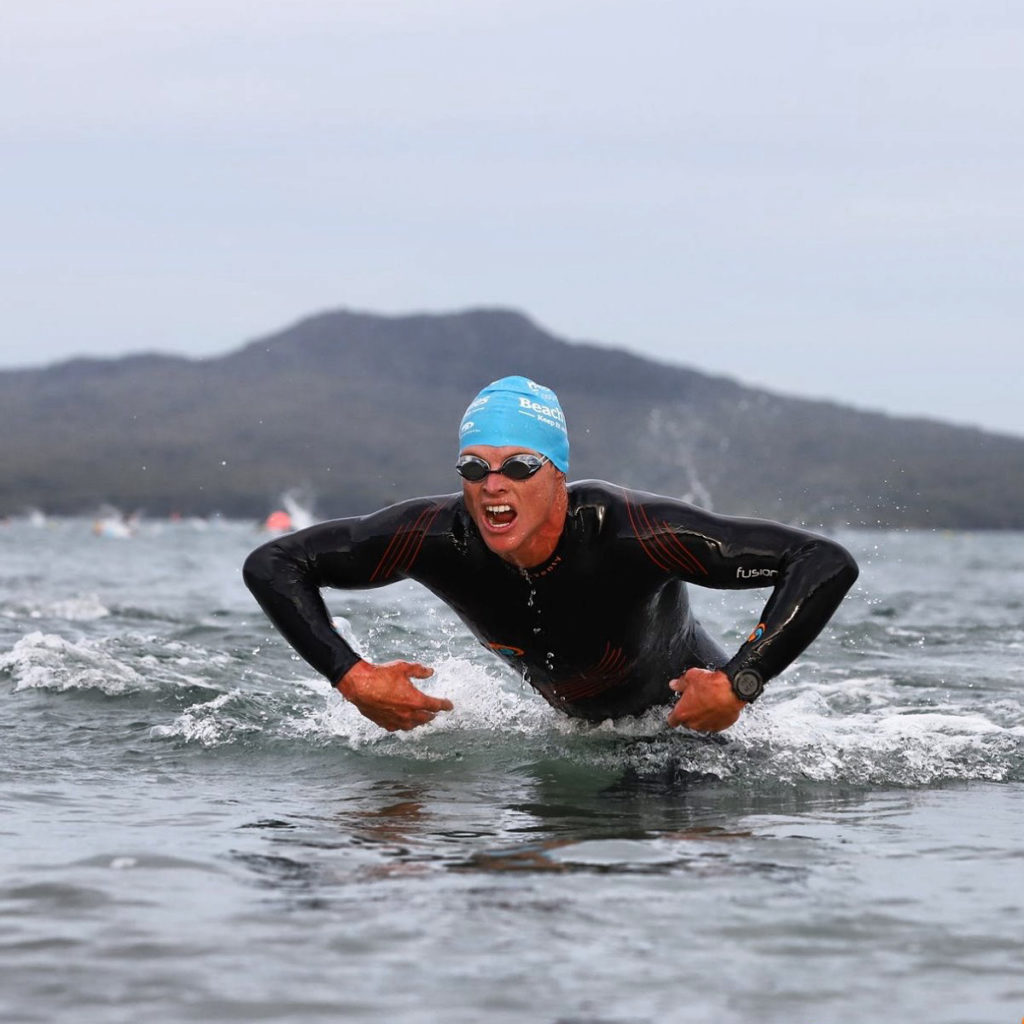The last time we checked in with triathlete Matt Kerr, he had just taken out a convincing win at the at the Ironman 70.3 in Cairns, Australia, where he hit the podium 16 minutes before his nearest rival.
We recently caught up with Matt about how he manages to balance his training around work and life, which Matt acknowledges as one of the toughest challenges of his intensive training programmes.
“I am committed to both my job and also extremely particular, intentional and structured towards executing my training plan. I like structure, I work well with structure, I like to plan and I also like a good routine. All of which fit into the admin heavy sport of Triathlon,” says Matt.
This doesn’t sound like it leaves much time for anything else, and when we heard about how early Matt’s days begin, you start to get an idea of how all this intensive planning and structure plays out day to day. Starting his day around 5am, Matt usually has an hour to catch up on work, gather his thoughts or enjoy a coffee over planning for the day. By 6am he is well into it, you’ll find him either in the pool, on a bike or you won’t find him at all, as he’ll be out running. These early starts mean early nights are a necessity, Matt isn’t your go-to on Netflix recommendations.
Depending on where Matt is at in his competition schedule, his training demands between 18 – 26 hours per week. Adding this in on top of a working week is an ongoing balance. Earlier this year Matt made the decision to prioritise his training and reduce his work commitments and in May, with the support from his employer, relocated to Queensland, Australia. There is a strong culture of triathlon on the Sunshine Cost, and a large number of events that results in more racing, not to mention a much more appealing year round climate.
This intensive schedule takes its toll and fatigue comes into play. In most circumstances, professional athletes are not working a full-time job, but instead use the extra time in the day to help support their recovery process. This covers physio, massage, self-rehab stretching and working on other important areas – such as sport psychology. Unfortunately, during those heavy cycles, the workplace becomes a recovery area for Matt. But Matt is lucky in this, as he has a very understanding and supportive employer – Whangamata Area School, and mentally he knows the pain is only a moment in time and won’t last forever.
Whangamata Area School supports Matt to be the best possible teacher and are eager to work together with him to achieve his personal sporting ambitions. It’s clear Matt is very passionate about his students, saying, “it helps that I work with secondary school students who are an absolute blast to work with!” However, although it’s evident the balance is a challenge Matt must continuously overcome, it is also something he clearly thrives on.
Thanks Matt for sharing insight into your day to day, we look forward to catching up soon about what is next for you in your competition schedule and you’re your return to New Zealand for the kiwi summer race season.
If you’re interested in supporting Matt from a sponsorship perspective, you can contact Scott Kerr, Scott@kerrectlogistics.com, and you can follow Matt’s journey on Instagram here and on Facebook here.
